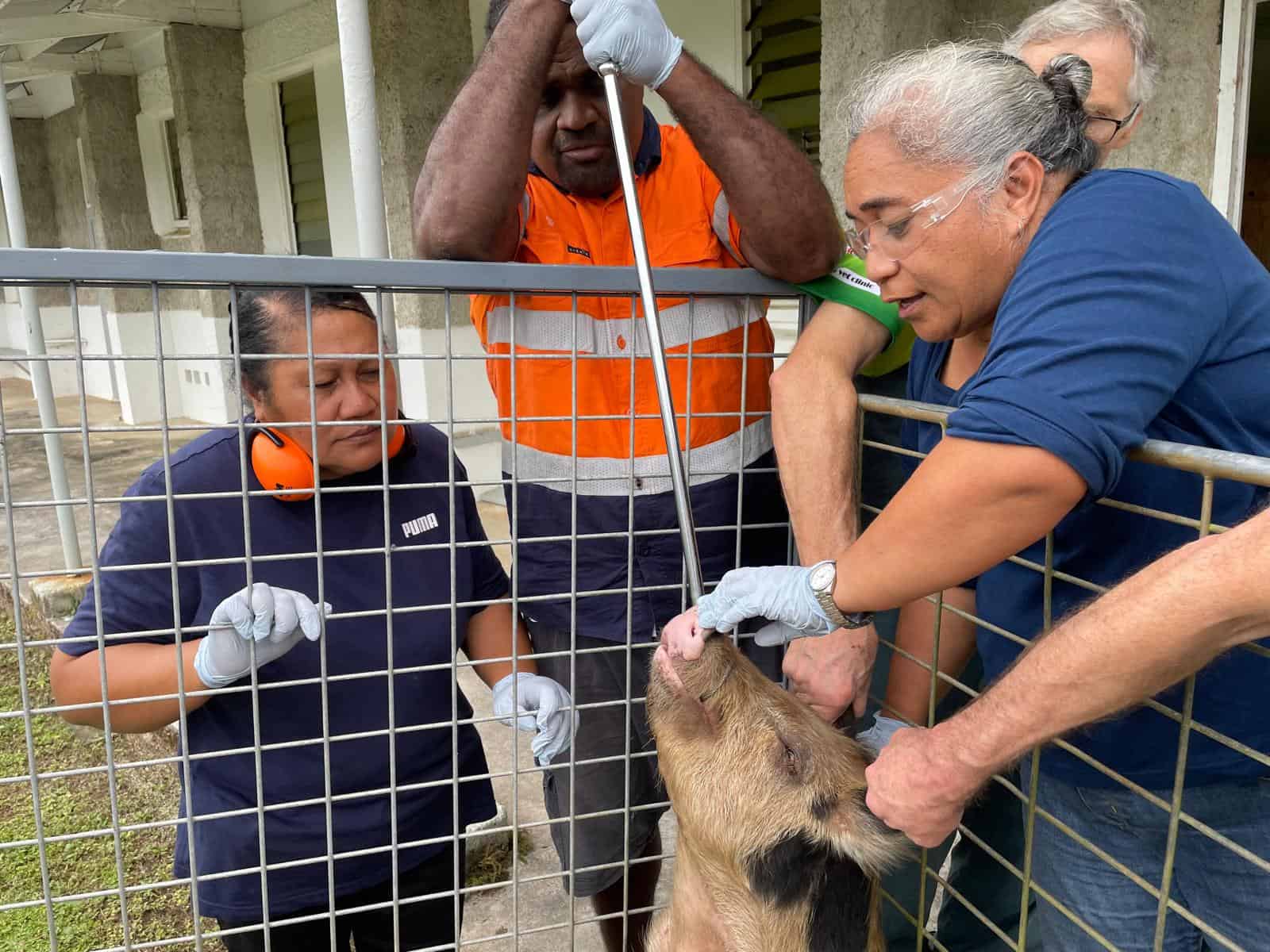Small ACP (African, Caribbean, Pacific) states boast a rich diversity of cultures and resources, giving them significant potential for greater trade and market opportunities. International trade plays a crucial role in the economic lives of Pacific ACP countries (PACPs). However, due to their inherent ‘smallness’ and ‘remoteness’, these nations face challenges in accessing markets and improving trade. Isolated from larger markets, PACPs encounter higher export costs related to transportation, marketing and distribution. Furthermore, small island nations struggle to meet international trade requirements and standards, further limiting their market access.
The ‘Safe Agricultural trade Facilitation through Economic integration in the Pacific’ (SAFE Pacific) project helps Pacific ACP countries (PACPs) address these barriers to accessing export markets by helping PACPs enhance value-added products and comply with international standards. Funded by the European Union and implemented by the Pacific Community’s (SPC) Land Resources Division (LRD), the project focuses on boosting safe trade practices, providing targeted assistance to support small Pacific Island countries in increasing export capacity and improving economic growth. Working across 15 Pacific nations1, SAFE Pacific strengthens biosecurity, animal and plant health, MSME value chain development, and supports organic certification efforts.
Key highlights of the project include:
Plant Pathology and Entomology Training of Trainers workshop: To strengthen capacity of biosecurity agencies in addressing biosecurity threats, Biosecurity and Plant Health officers from 15 Pacific countries were trained on Plant Pathology and Entomology. Participants of the training engaged in theory, practical and field immersion sessions, shared best practices, learnt diagnostic techniques and research methods. The skills gained from the training will complement their ability to detect and control plant diseases and pests within their communities and countries.
Paravet training: Participants from Cook Islands, Fiji, Kiribati, Nauru, Niue, Republic of Marshall Islands (RMI), and Tonga completed the paravet training programme and are now equipped with knowledge and skills to deliver professional animal healthcare and production advice to farming communities in-country. Paravets provide basic animal healthcare and production advice to farming communities where there are few or no veterinarians. Having qualified paravets ensures that these countries have the necessary expertise to protect their animal and livestock industry, safeguarding the entry and spread of serious animal diseases.
MSME Hazard Analysis and Critical Control Points (HACCP) training: MSME grantees from Fiji (Farmboy), Solomon Islands (Sol Kava), and Vanuatu (ACTIV) were trained and equipped with essential knowledge and practical skills to improve food safety. This training helps them strengthen their processes to comply with international regulations and support safer trade practices.
Cook Islands Plant & Soil Health training: Extension officers from the Cook Islands Ministry of Agriculture were trained in plant and soil health and are now equipped with the skills to diagnose and manage plant health issues. This will benefit local farmers who seek timely, high-quality advice on plant pest and disease management.
Biosecurity SPS2 in-country support to the National Plant Protection Organisations of the Micronesian Sub-region: Biosecurity agencies in Nauru, Palau, Federated States of Micronesia (FSM) and RMI supported with refresher trainings and field immersion exercises to better manage plant/animal pest and disease risks at pre-border, at the border, and post-border levels.
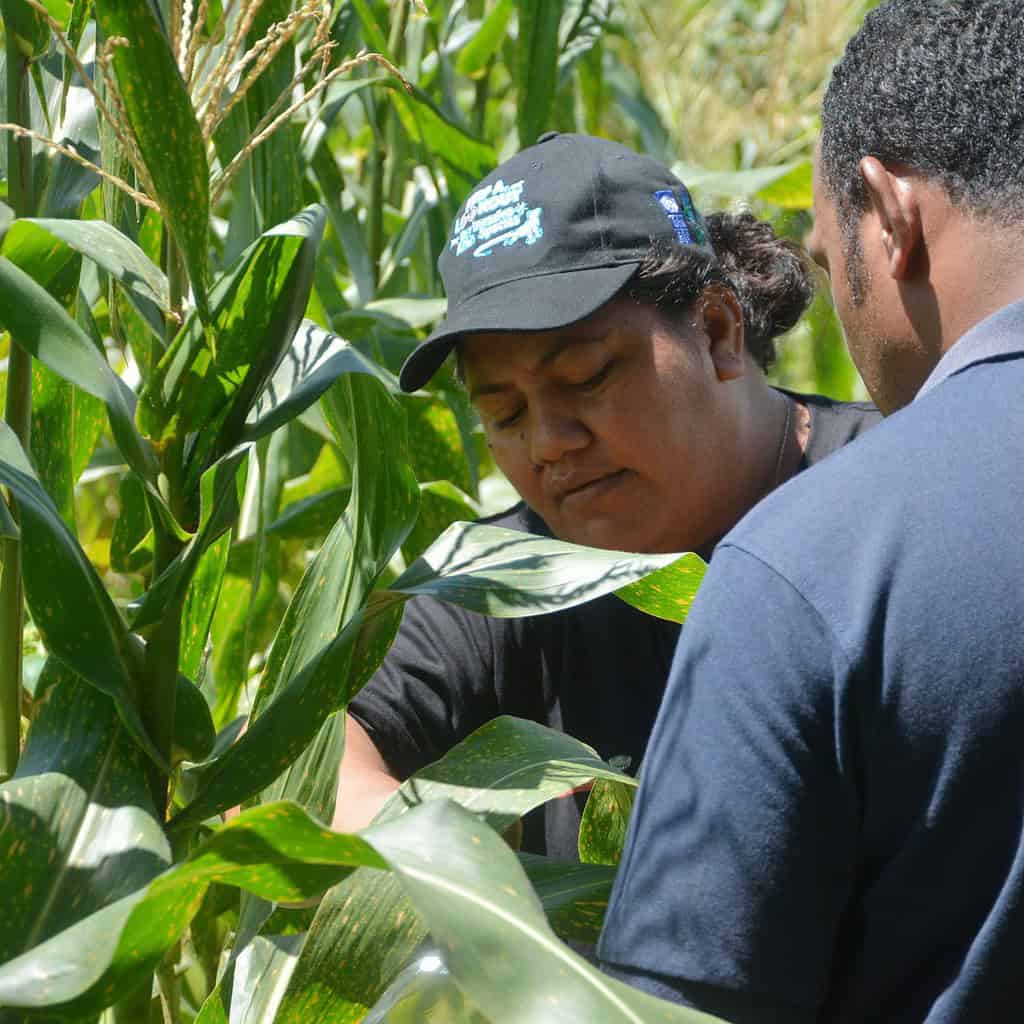
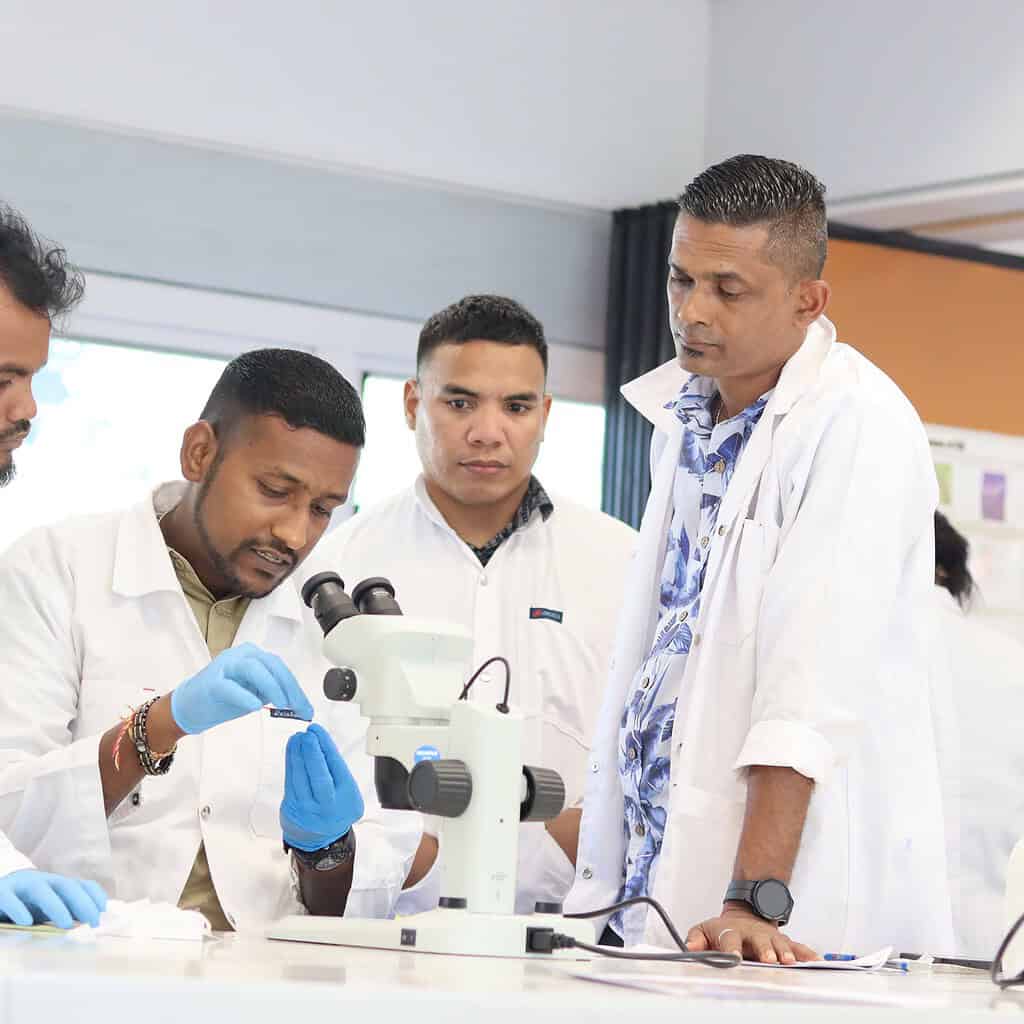
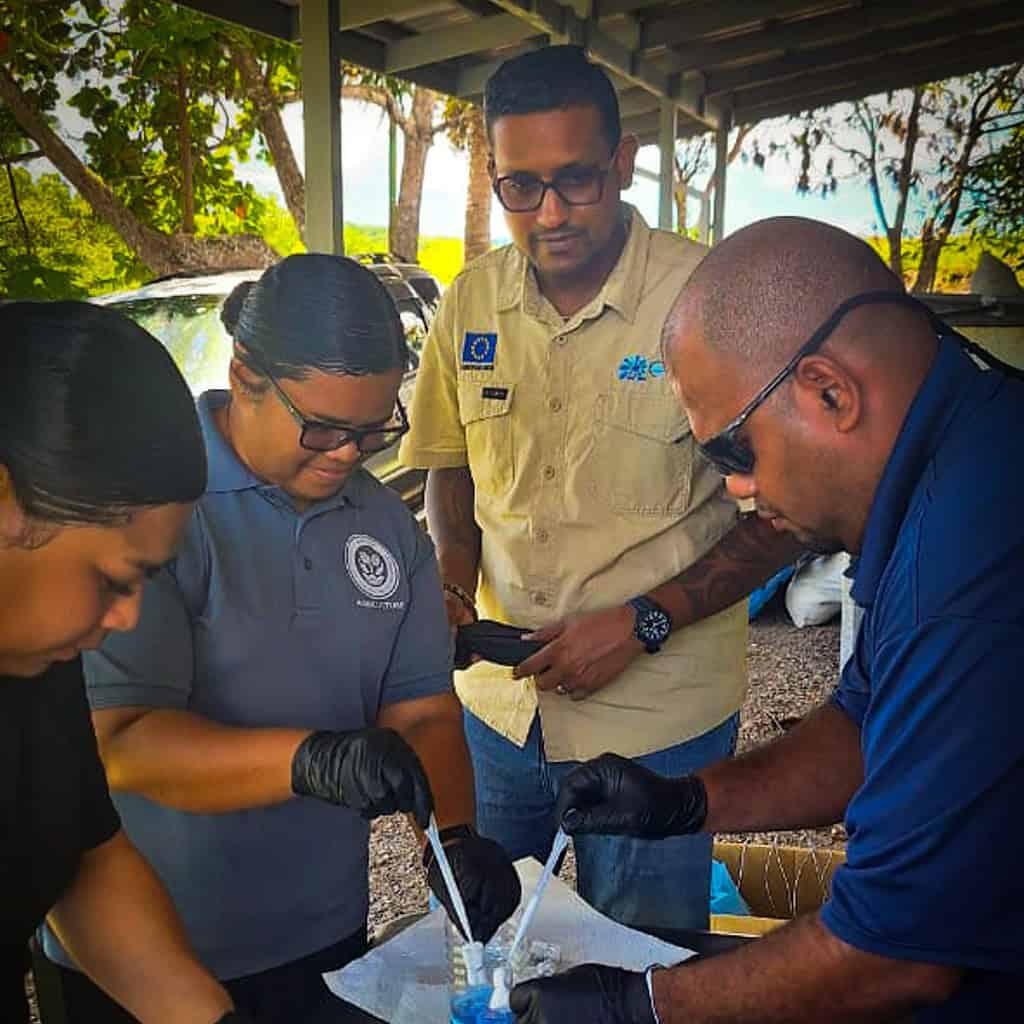
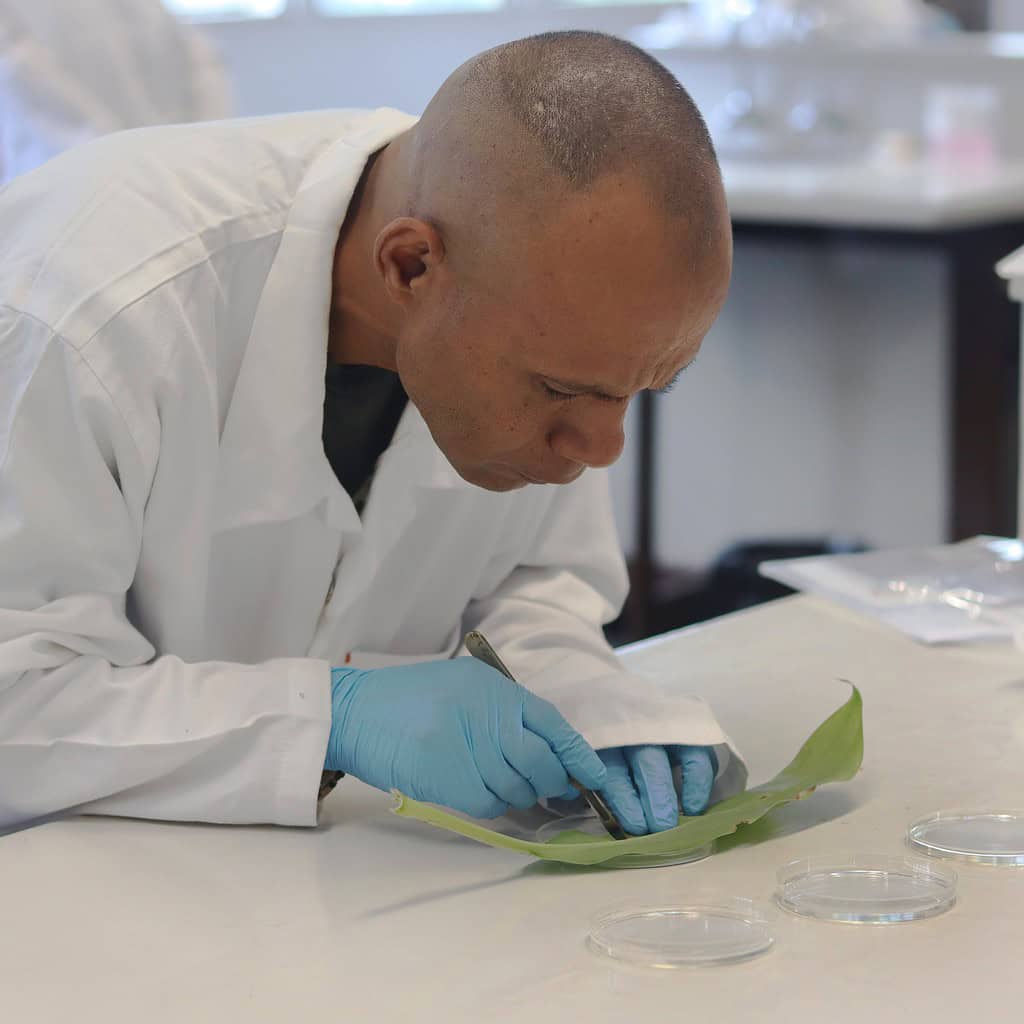
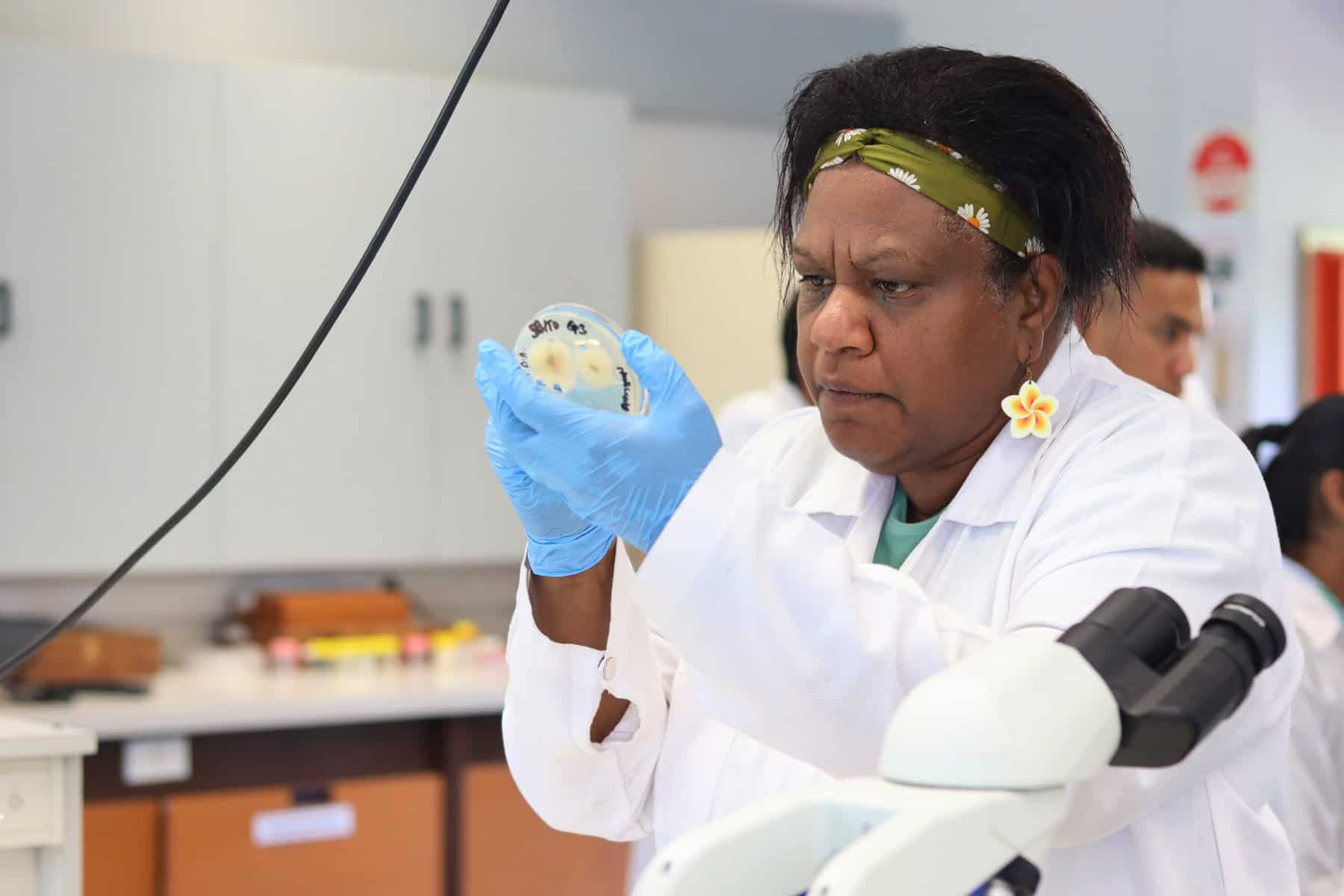
1 Cook Islands, Fiji, Federated States of Micronesia, Kiribati, Nauru, Niue, Palau, Papua New Guinea, Republic of the Marshall Islands, Samoa, Solomon Islands, Timor-Leste, Tonga, Tuvalu, and Vanuatu.
2 Sanitary and Phytosanitary Standards.
For more information, visit https://lrd.spc.int/projects/safe-pacific
